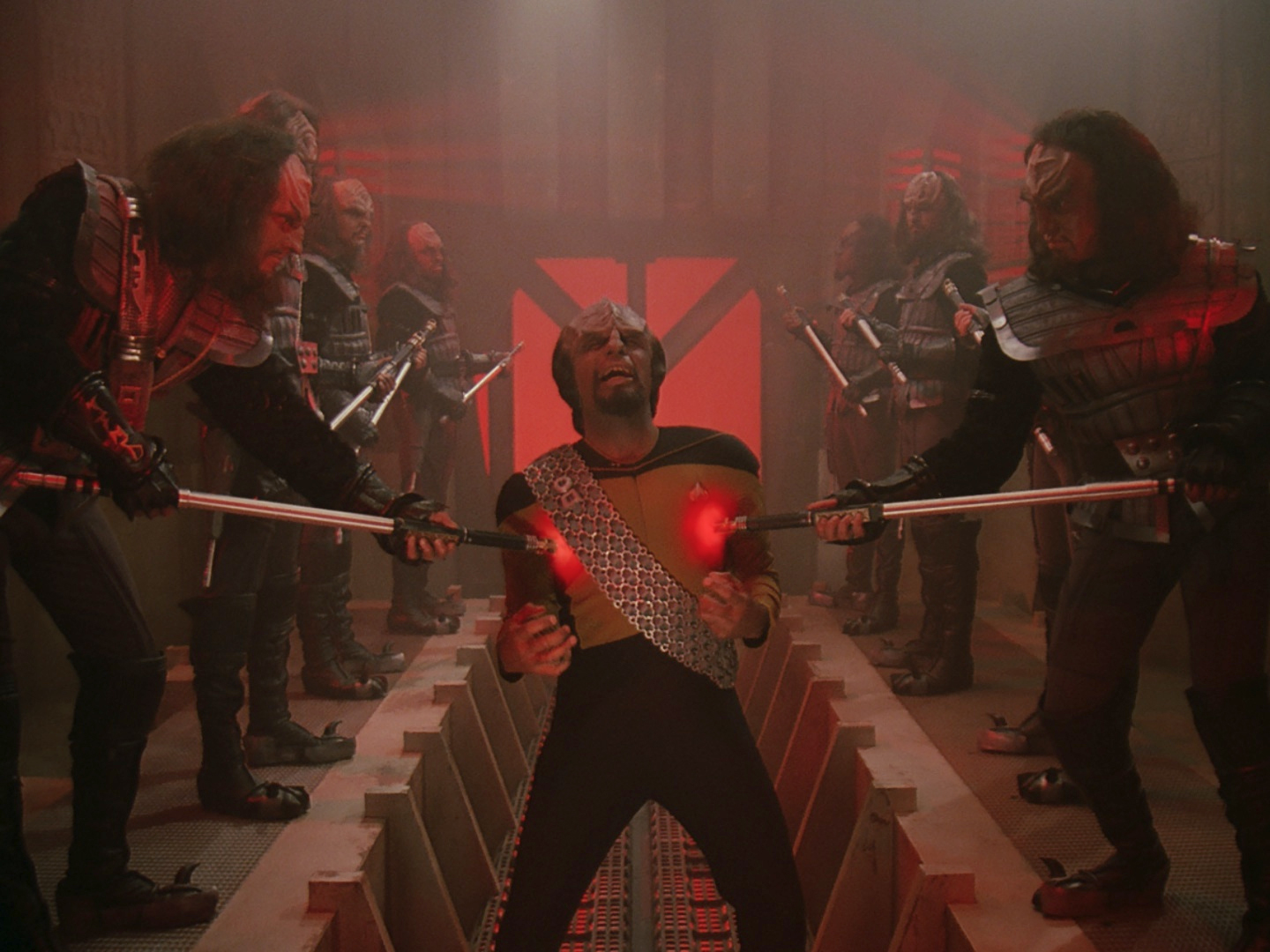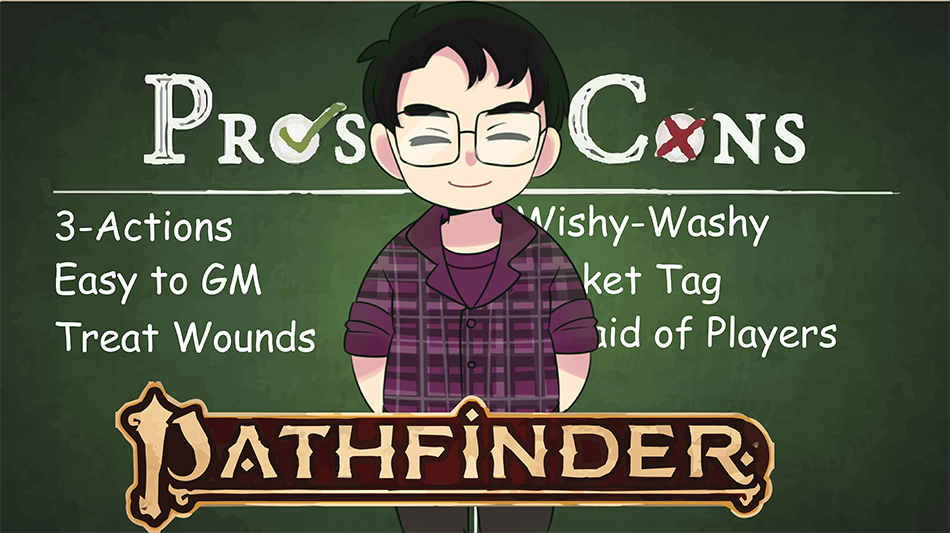Picture a Star Wars movie. Any Star Wars movie. OK, most Star Wars movies. Now picture a scene in that movie involving either a Jedi in training or someone mentoring a Jedi. What you are picturing is a potential solution to 2e’s ambiguous access rules.
The Rules of Rarity
Second edition added Uncommon, Rare, and Unique as traits to indicate how likely a character is to have less common options. According to the Core Rulebook:
Some elements of the game have a rarity to denote how often they’re encountered in the game world. Rarity primarily applies to equipment and magic items, but spells, feats, and other rules elements also have a rarity… Uncommon items are available only to those who have special training, grew up in a certain culture, or come from a particular part of the world.
This may all change when the Game Mastery Guide releases, but at the moment the rules for choosing these options are vague and inconsistent. Sometimes a not common option flat out says how to qualify for it with a second prerequisite line called Access. Other times, another option flat out says it grants access to one or more not common options, like Dwarven Weapon Familiarity giving access to uncommon weapons with the Dwarven trait. And then there are some not common options that do not give any indication how to qualify for them.
Lost Omens – Character Guide expands on this:
Sometimes, a stat block for an uncommon rules element includes an Access entry that lists specific criteria. A character who meets the criteria listed in the Access entry, such as hailing from a particular locale or being a member of a particular organization, gains access to the rules element…. As always, the GM has the final say on how rare an option is, who can access uncommon or rarer options, or whether specific options are allowed in the game at all; they may decide that a person’s upbringing makes sense for a specific ancestry feat even if the character doesn’t automatically qualify for access, or they may decide that same ancestry feat cannot be taken by anyone at all.
GM fiat is all well and good, but when conventional wisdom states that we GMs should say yes to players, following that advice eliminates the mechanical purpose of the Uncommon rarity. It also contradicts the precedence that a feat or backstory element is needed to access an Uncommon option. Although when there are Uncommon ancestries, it’s impossible to take a feat to be what your character gained access to at birth, and its hard to say a backstory like “Bob is a lizardfolk” does not give Bob’s player access to the uncommon lizardfolk ancestry.
There is also the argument that the Uncommon rarity gives us the option to reject material we don’t want in our campaign. The problem is that many of our fellow GMs want that same option for common options. So are we as GMs allowed to disallow any option in the game, but we have slightly more precedence to disallow options based on rarity?
It should also be noted that according to Paizo staff I’ve talked to, rarity is not used to limit access to more powerful options. It’s more for flavour and setting purposes. So don’t think uncommon = more powerful. It’s also important to note that by “nebulous” I don’t mean “broken”. The rules work as a guideline, they could just be more explicit in certain areas. Maybe offer a few ideas for how to grant access.
So I put an idea together. The goal is to give us as GMs an option between Yes and No when presented with character concepts that require Uncommon options to work, one that neither undermines or is redundant with the rules of rarity. Instead of defaulting to No or Yes, consider “yes, but with training.”
Preemptive Retraining
I went into this in our most recent episode of Know Direction, but I consider Downtime one of 2e’s most practical successes. It amuses me that the Downtime Mode section of the Core Rulebook is one page long, but that’s because Downtime activities are mostly outlined in the Skills section. For our purposes, the rules we need are on that one Downtime Mode page: Retraining.
I mentioned in our 2e review that I think it’s odd/hilarious that through the history of the retraining rules, from 3.5 to Pathfinder 2e, the flavour mentions needing an instructor to teach you how to lose an old ability and gain a new one, but no such instructor is necessary to gain an abiliy in the first place. The best I can figure is that PCs are assumed to be passively training for the options naturally along their path, but retraining represents going off that path.
What if that PC wants to go off the path before having to replace existing knowledge to gain new knowledge?
Training
Back to Star Wars, what if Jedi aren’t strictly more powerful than everyone else in the galaxy, they’re just more complicated? The reason so many Star Wars films involve Jedi training is to illustrate that even though a high percentage of protagonists in these movies are Jedi, a tiny percentage of the population of this universe can say the same.
Training works exactly like retraining, except instead of replacing an existing option with another, a PC must commit a certain amount of Downtime to training for an option before they are allowed to take it. Following retraining’s suggestions (the CRB’s term for the retraining time requirements, not mine), a feat takes about a week of downtime, a class feature takes a month. So say a player wants to give their character Backup Disguise, an Uncommon feat from the Firebrand chapter of the Character Guide that does not explicitly state how to access it, it will take them a week of Downtime to qualify.
The Downtime Mode rules don’t have suggestions for things like spells and they don’t spell out whether all feats are equal (particularly archetype dedication feats). I suggest the following:
- ANCESTRY FEAT: 1 week
- GENERAL FEAT: 1 week
- CLASS FEAT: 2 weeks
- ARCHETYPE FEAT: 2 weeks
- CLASS FEATURE: 1 month
However, this isn’t the solution for all options. Training to be a lizardfolk makes as much sense as taking a feat for it.
Unkeep
In the case of Uncommon options that don’t fit the mould, consider Upkeep instead. And instead of Star Wars examples, we’ll switch to Star Trek.
A recurring theme for Worf, the Klingon security officer on Star Trek: The Next Generation and Deep Space 9, is that the other klingons treated him like he wasn’t a real klingon. He was out of touch with their politics, and acted more like the non-Klingons he chose to associate with. And yet, we were regularly shown Worf engaging in traditional Klingon activities, and talking about Klingon history and philosophy.
Upkeep is training when you have access to an uncommon character creation option. So far there are uncommon ancestries, we may someday see uncommon backgrounds and classes. Before such an Uncommon character can advance, they need to spend Downtime on upkeep. If your player wants to choose an uncommon option at character creation, assign a certain amount of Downtime they need to assign to upkeep. For example, you could declare that a lizardfolk PC needs to spend one day a month on a special supplies run, because they have dietary needs that are harder to meet outside of their environment. Or they spend that time socializing with other lizardfolk, something that needs to be scheduled because the rarity of their occurrence means they don’t tend to cross each other’s paths.
This is a less elegant solution, as it requires some kind of punishment for failing to meet the Downtime requirement, or mandatory Downtime that takes agency away from the player. It’s thematic, like a real world religious person having to go to church or dedicate a certain amount of their free time to worship, but thematic isn’t always fun.
If anyone has any suggestions for implementing training on options like Uncommon ancestries, let me know via the Know Direction Discord.
Implementing
Here are some tips for implementing Training and Upkeep activities.
Really could have used your help out there
One of the early scenes in Rise of Skywalker that establishes the sacrifice Rey is making by training is when Poe confronts her about how useful she would have been on that mission. I don’t recommend we GMs have characters train while the rest of the party is adventuring -this is a Downtime activity, after all, not an Exploration mode activity- but the idea that training is a sacrifice is realistic.
If you want to drive home how challenging the training is, or what the character in training is sacrificing, you can jump cut back and forth between the different Downtime activities. The crafting PC making measurable progress on their item cuts to the tedium of working out and hoping for results. The information gathering PC schmoozing a crowd over drinks cuts to the silent loneliness of a reading alone.
We Need A Montage
If your player is more mechanically minded, you can break the training into a series of skill checks. You bring the flavour, they bring the die rolls. This can be purely for the fun of rolling dice and making checks, or it can be a minigame where you add or remove a day or two (no more than that) from the total Downtime needed based on their successes. Or you can have a ranking system based on predicted outcomes, awarding them titles or badges based on how their results compare to the statistical probability.
Squad Goals
Regular training is an opportunity to introduce a cast of supporting character NPCs, each a potential quest giver, ally in distress, or chance to roleplay. You can provide your player with classic tropes like a rival with the same skill set and goals, a sidekick who makes up for less ability with more heart and knowledge of the training, or an instructor who seems committed to the PC’s failure.
Every two weeks, Ryan Costello uses his experience as a Game Master, infused with popular culture references, to share his thoughts on best GMing practices to help his fellow GMs. Often deconstructing conventional wisdom and oft repeated GMing advice, he reminds his fellow GMs that different players play the game in different ways, and for different reasons.









